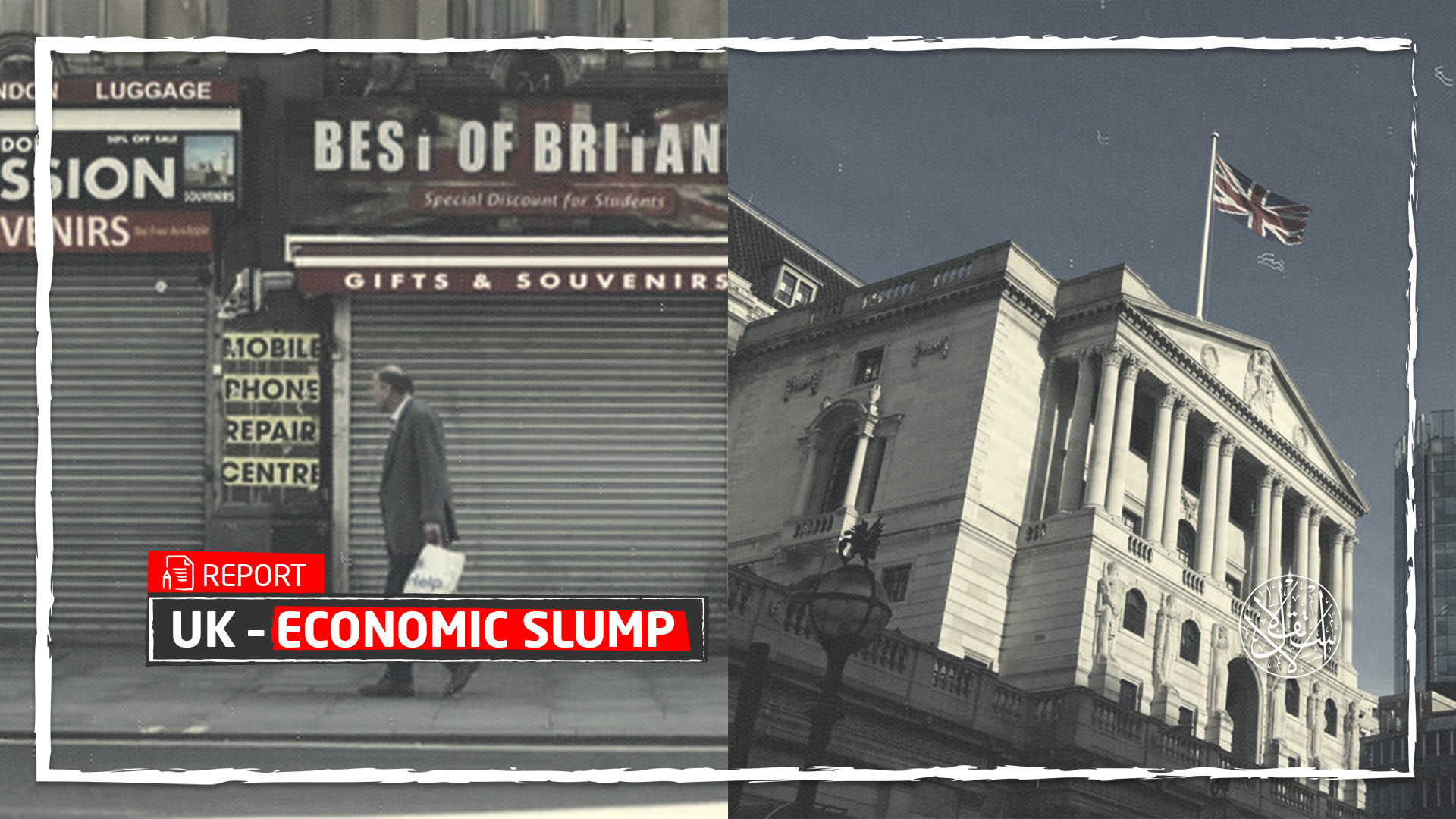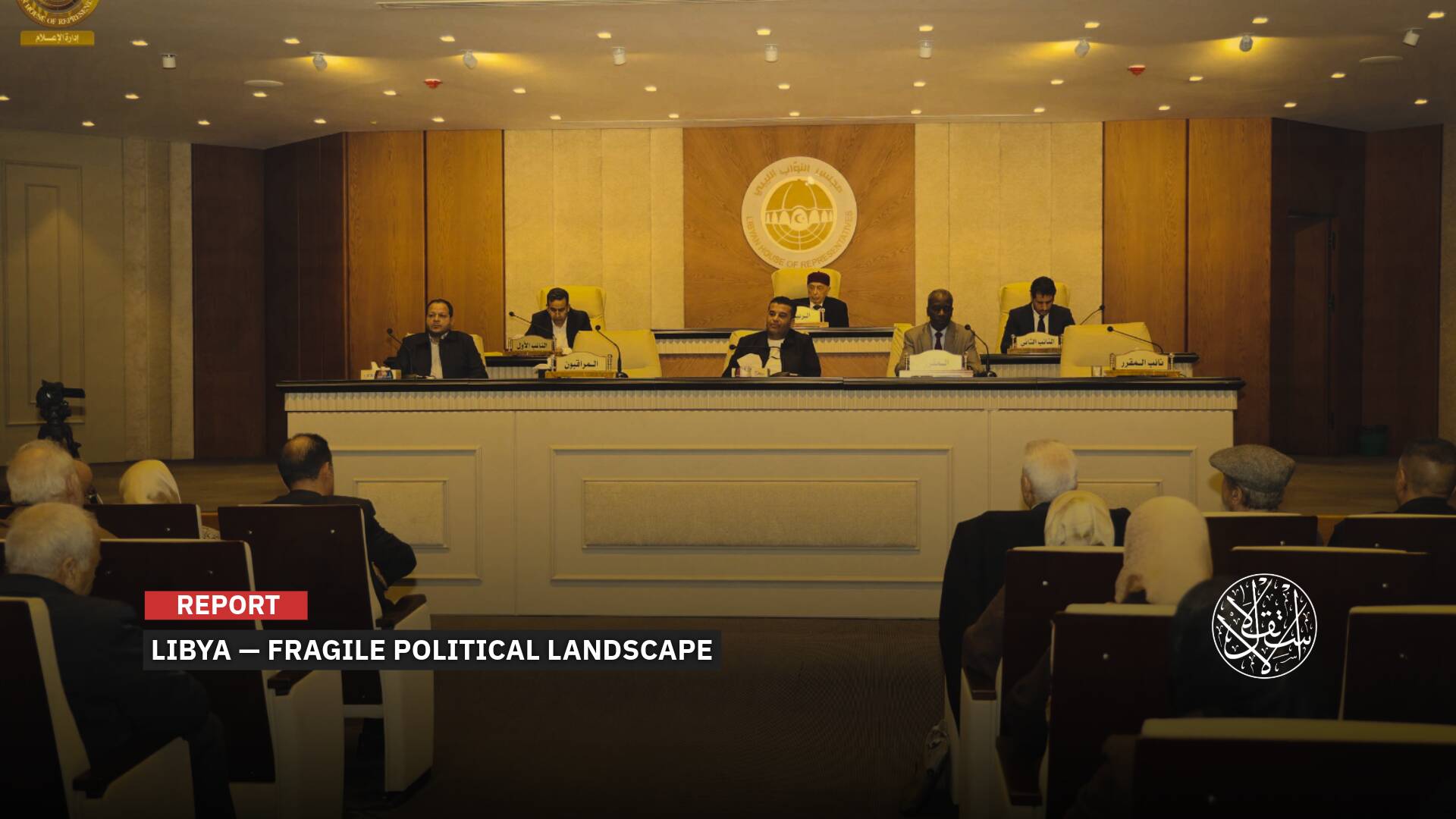The Biggest Slump in 300 Years: These Are the Reasons Behind the British Economy Shrank Record

The British economy declined by 11 percent in 2020. It is the biggest contraction in 300 years caused by the Coronavirus pandemic, according to a review of new data published by the Office for National Statistics.
The National Office had previously estimated that Britain's gross domestic product contracted by 9.3 percent in 2020, but the latest revision came as a result of changes in the way the data is calculated.
The downturn is the largest since the Great Frost of 1709, according to Bank of England data. Consequently, the United Kingdom's economy recorded a contraction that exceeded that recorded in all the G7 countries.
More than one British think tank has warned that the country is on the verge of a financial meltdown that could be worse than the one that occurred in the global financial crisis in 2008, and opinions differ only as to what the British economy has already entered or is on the verge of entering a deep economic recession.

Severe Decline
The National Institute of Economic and Social Research has predicted that the economy is already in recession, estimating that the number of British families who will struggle to afford the cost of living will double to seven million by 2024.
The BAO Group, one of the world's oldest conservative think tanks, warns that a collapse worse than the one we witnessed in 2008 is imminent.
Inflation in Britain is set to exceed 18 percent at the start of 2023 due to very high energy prices, according to new forecasts by economists at Citi.
Experts expected consumer price index inflation to reach 18.6 percent in January, which will be the highest in nearly half a century. Last July, consumer price index inflation reached a 40-year record high of 10.1%.
Whoever will be elected leader of the Conservative Party and head of government to succeed the current Prime Minister Boris Johnson faces a very difficult task: managing the treasury dues for debt service and social security payments in the coming period.
According to an analysis of the Financial Times newspaper, published in its weekly edition, debt service will double in the next fiscal year as a result of high inflation rates and an increase in the interest rate.
The analysis was based on figures from the Bank of England, UK's central bank, in its latest statement and on expectations of inflation and interest rates, and as a result, more than 60 billion dollars (50 billion pounds) will be added to the dues that the British government must pay.
The cost of servicing Britain's government debt is expected to rise from about $60 billion (£50 billion) now to more than $115 billion (£95 billion) next year. That's because about $607 billion (£500 billion) of British public debt is tied to the CPI, the barometer of inflation.
Social Security payments linked to the price index are also expected to rise by about $28 billion (£23 billion) a year over the next two years.

Multiple Reasons
Although inflation rates are rising in most countries of the world due to the war in Ukraine, sanctions imposed on Russia, and the return of closures in China due to the Coronavirus pandemic, the rise in the cost of living in Britain is much worse than in other similar countries economically. A report by The Daily Telegraph expected that the cost of living in Britain would increase and get worse than in other countries in the coming months.
Christine Forbes, a former member of the Bank of England's monetary policy committee, warned last week that Britain was "suffering from all six of the factors that fuel high inflation." Although the factors of inflation are mostly attributed to external conditions related to a global food and energy crisis as a result of the war in Ukraine and disruption of supply chains, the British suffered more than others from government policies as well. Unlike the rest of the governments in the world, the British government increased taxes on citizens, which doubled the income crisis at a time when the real value of wages was declining as a result of inflation.
"Put all of these factors together, and you can see how challenging Britain is and why inflation will soon cross 10 percent this year. You're unlikely to encounter all these factors and rates in any other country," says Forbes.
One of the factors that fuel the high rates of inflation is the conditions of the labor market and jobs in Britain, as the labor force in the British economy continues to shrink. Many economists and analysts believe that the British government's policy, which does not allow labor migration to Britain, has exacerbated this problem. According to figures from the Institute for Employment Studies, the workforce in Britain is currently about 1.2 million less than it was before the Coronavirus pandemic crisis in 2020.

Conservative's Responsibility
The center's president, Ben Harris-Quinney, said the government cannot evade responsibility for this situation, but rather it is the main blame, according to what was quoted by the Daily Express newspaper.
"Boris Johnson's administration has ignored a very simple economic truth—that you cannot print, borrow and spend to excess without eventually facing dire economic consequences," he added.
In response to the arguments that the coronavirus crisis or the Ukraine war is responsible for this situation, Zouhair Attouf, expert on politics and international relations, told Al-Estiklal, "This is not only the result of the pandemic since the Conservatives came to power in 2010, but the national debt has also tripled. Their policies have been the opposite of all conservative traditions in terms of rationalization and financial and economic management."
Doubts are growing about the ability of either Sunak or Terrace to solve the current crisis or to halt Britain's trend toward economic collapse. The Daily Express quoted the businessman, a former parliamentarian from the Brexit party, Ben Habib, saying that the depth of the crisis, not its solution, will depend largely on the outcome of the current competition for the leadership of the Conservatives.
According to Habib, the victory of Rishi Sunak as party leader and prime minister will only mean the continuation of the current situation, and almost nothing is done.
He added that Sunak recognizes that the economy needs to be rebuilt, and this is an exciting admission from the former Treasury Secretary, but his strategy to do that is to follow the same policies that got us to this situation. Although he expressed his hope that Liz Truss would win, he also indicated that Truss will have no chance of maneuvering to do something.
The businessman and former MP concludes in his analysis that the possibility of Britain avoiding a winter of anger as happened in 1979 and the Conservatives losing the election depends on Truss' ability to win and act quickly.











